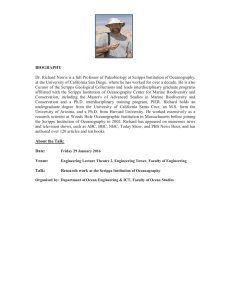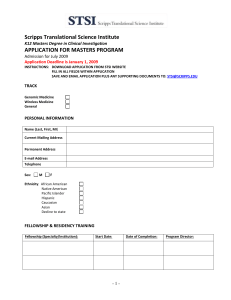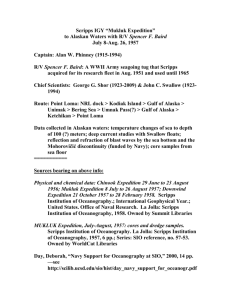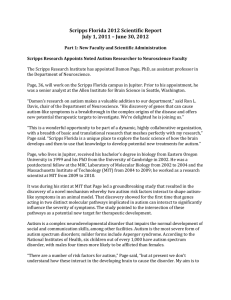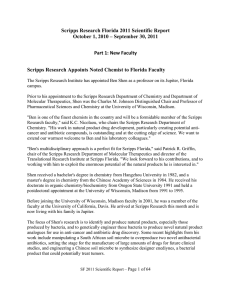Statement The Scripps Research Institute The Importance of Animals in Biomedical Research
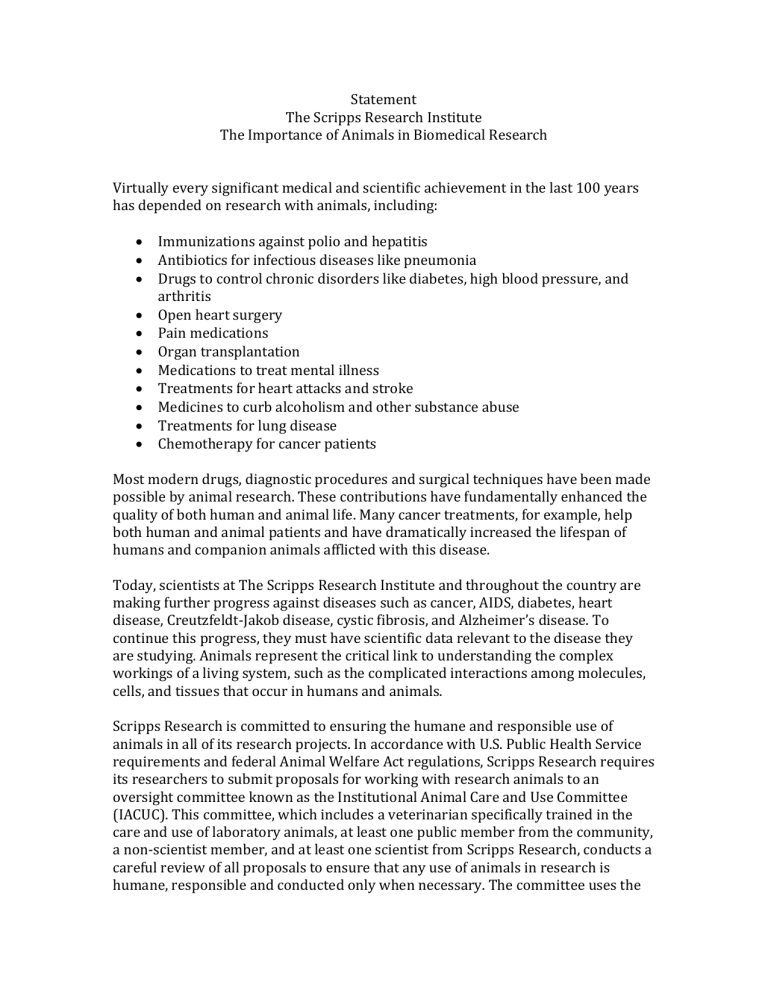
Statement
The Scripps Research Institute
The Importance of Animals in Biomedical Research
Virtually every significant medical and scientific achievement in the last 100 years has depended on research with animals, including:
Immunizations against polio and hepatitis
Antibiotics for infectious diseases like pneumonia
Drugs to control chronic disorders like diabetes, high blood pressure, and arthritis
Open heart surgery
Pain medications
Organ transplantation
Medications to treat mental illness
Treatments for heart attacks and stroke
Medicines to curb alcoholism and other substance abuse
Treatments for lung disease
Chemotherapy for cancer patients
Most modern drugs, diagnostic procedures and surgical techniques have been made possible by animal research. These contributions have fundamentally enhanced the quality of both human and animal life. Many cancer treatments, for example, help both human and animal patients and have dramatically increased the lifespan of humans and companion animals afflicted with this disease.
Today, scientists at The Scripps Research Institute and throughout the country are making further progress against diseases such as cancer, AIDS, diabetes, heart disease, Creutzfeldt‐Jakob disease, cystic fibrosis, and Alzheimer’s disease. To continue this progress, they must have scientific data relevant to the disease they are studying. Animals represent the critical link to understanding the complex workings of a living system, such as the complicated interactions among molecules, cells, and tissues that occur in humans and animals.
Scripps Research is committed to ensuring the humane and responsible use of animals in all of its research projects. In accordance with U.S. Public Health Service requirements and federal Animal Welfare Act regulations, Scripps Research requires its researchers to submit proposals for working with research animals to an oversight committee known as the Institutional Animal Care and Use Committee
(IACUC). This committee, which includes a veterinarian specifically trained in the care and use of laboratory animals, at least one public member from the community, a non‐scientist member, and at least one scientist from Scripps Research, conducts a careful review of all proposals to ensure that any use of animals in research is humane, responsible and conducted only when necessary. The committee uses the
Guide for Care and Use of Laboratory Animals (National Academy Press), Public
Health Service policy, and the federal Animal Welfare Act as standards.
An example of our commitment to humane animal care and use is the requirement that scientists address possible alternatives to the use of animals. Each protocol describes the availability and feasibility of other models such as the use of cells, tissues, and computer models to achieve understanding of the research topic. In addition, all individuals using animals or directing animal research are required to complete hands‐on training with each species of animal that may be used and instruction about the detailed animal welfare standards to which Scripps Research is committed.
Scripps Research is one of about 800 institutions in the world accredited by the
Association for Assessment and Accreditation of Laboratory Animal Care
International (AAALAC), a private nonprofit organization that promotes humane treatment of animals in science through a voluntary accreditation program. In addition to AAALAC site visits for accreditation purposes, Scripps Research also receives at least one unannounced inspection visit from federal authorities annually.
Scripps Research strives to maintain the highest quality animal care and use program. Good science and good animal care are inseparable.
